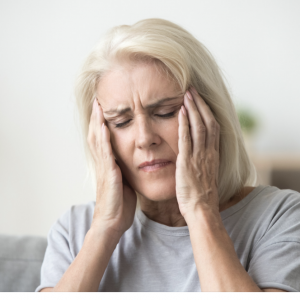For Your Pains: New Insights Into The Experience And Management Of Pain

For Your Pains: New Insights Into The Experience And Management Of Pain
April 14, 2021
As the most common reason why individuals seek out medical care, pain represents a complex combination of factors, some concretely understood and recognizable with others more subjective, depending upon your own complex history. How you feel pain, how you withstand pain, and what you can do to address and manage it can be unique to your specific situation. But there are recent studies and new insights that give us a better sense of ways to understand and manage pain, regardless of its source. For some background on various aspects of pain and its management, take a look at these previously posted agebuzz posts and resources.
One recent insight has to do with the reasons men and women may experience pain differently. According to a new study published in PLOS Genetics, women appear to be at greater risk of experiencing chronic pain than men, due in part to a different genetic basis for pain in men versus women. Furthermore, this study supports the theory that chronic pain originates to a large extent in the brain rather than at the site where the pain is experienced. For additional insights, take a breather and click here. Perhaps exacerbating the experience of pain in women is the evidence that gender stereotypes among both male and female health care staff can lead to an underestimation of pain in women and a false belief that women are oversensitive to pain. In two new studies published in The Journal of Pain, researchers found that staff often discount the verbal reports of pain from women, thereby leading to undertreatment. For more about the implications of gender stereotyping in the assessment of pain, read this recent post from Dr. Amanda C de C Williams from University College London.
In another recent examination, it appears that chronic pain can be an early sign of emerging dementia. In this British study of government employees, those who were eventually diagnosed with dementia felt increasing pain over several decades in comparison to those who did not end up with a dementia diagnosis. The theory is that the dementia was not caused by pain but that pain might be an early symptom of dementia. Once dementia has taken hold, however, the irony is that those with a dementia diagnosis are often unable to express their feelings of pain in usual ways and thus may silently suffer or experience other behavioral problems such as wandering, moaning, or difficulties sleeping or eating due to unaddressed pain.
Regarding the management of pain, especially chronic pain, clinicians continue to look for non-opioid methods of relief, given the intolerance and addiction that can come from long-term opioid use. In a recent comprehensive guide published in Next Avenue, psychologist Jackson Reiner reviewed the range of treatment options available, depending upon the specific situation, which includes medications, surgical intervention, and integrative methodologies, that combine such treatments as physical therapy, acupuncture, chiropractic methods, and psychological interventions. While cannabis-based medications have also been used, the scientific evidence of their value remains unclear. One other option? Researchers recommend exercise as an alternative to medications or surgery. Pain killers may relieve pain but do nothing to address underlying issues with joint stiffness or muscle weakness, which may be particularly present given the sedentary nature many of us spent the last year. So before your reach for a Tylenol, you may want to first take a walk.







